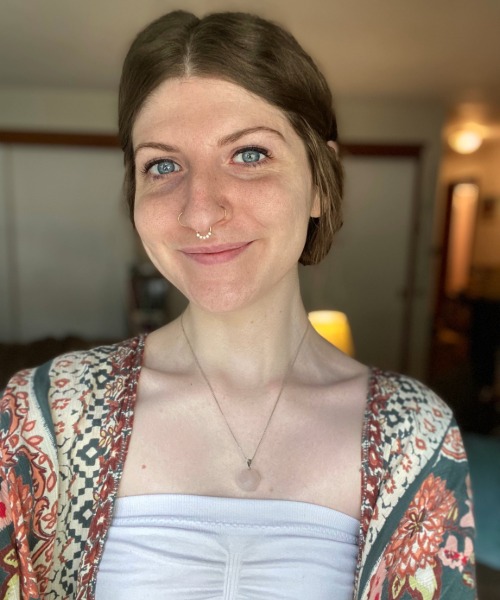
When she was a sophomore at Black Hills State University (BHSU), Leslie Wooten, the math major from Upton, Wyoming, was planning her next move. She’d always had a good eye for business, and the technical skills she learned studying math at BHSU meant she was well-prepared to begin her graduate studies. But the process of putting together a strong application was daunting and, although she knew she wanted to study on the West Coast, she didn’t know which specific university she wanted to attend. That was when her professors stepped in. Daniel May, a professor of math at BHSU, helped her put together her application. “Even though he’s a great mathematician, he’s also a great writer, so he helped with my cover letter,” she said. Meanwhile, Ron Debeaumont, the since-retired chair of economics, recommended his alma mater, the University of Oregon, where Leslie is now pursuing her Ph.D. in economics.
Leslie attended school in Upton until she was 12. That was when her family moved to Gillette, to accommodate her father’s job working on oil rigs. In Gillette, while studying at community colleges, she fell in love with math and economics. “There’s beauty in the method and logical process of proving things,” she said. To pursue her passion, she moved to South Dakota to study at BHSU.
The college transition can be tumultuous, but Leslie says BHSU’s curriculum helped her form a community. “It really felt like a strong cohort [that] got to move through most of the math series together,” she said, referring to the order in which math students at BHSU take classes. “So that was really nice.”
Having started her education at a small community college, Leslie appreciated BHSU’s low student-to-teacher ratio. “The classes are small and intimate, and I love that about BH,” she said. “It’s not so much sitting through lecture as it is working through problems in groups and like the professor coming around and helping us.” In many BHSU math classes, rather than listening to a lecture in class, then completing problem sets in their spare time, students work on assignments in the classroom with the assistance of professors.
Leslie says her classes at BHSU left her well-equipped for challenges of her graduate program, in particular Dr. Parthasarathi Nag’s class in topology, a subfield concerned with the properties of objects that can be manipulated but not broken. “It’s a very, very hard math class, very abstract and theoretical...but there’s lots of concepts from that class that I use every day now,” she said.
Leslie isn’t sure what she’ll do after completing her Ph.D, five years from now. She says that going into academia and becoming a professor like her mentor, Dr. May, is one option she’s considering. Another possibility is joining the FBI as an analyst. But she says it would be a “dream” to work for the International Monetary Fund (IMF), a sub-agency of the United Nations that provides loans to governments in exchange for implementing neoliberal economic reforms. It’s “liberating” to have all these options, she says. “I’m always changing and so by the time the next five years are up, I don’t know what I will have chosen and so it gives us the freedom to change our minds throughout our life.”
Leslie hopes that her work will have a positive social impact on the world. “I do think we [economists] have a responsibility to our fellow humans to try to make economies not just as efficient as they can be, but also equitable,” she said. “Spending all of this time trying to study the complex intricacies of how it [the economy] works, we have more of a burden of responsibility.”
No matter which career she eventually settles on, it’s the training she received at BHSU that will allow her to meet that responsibility.